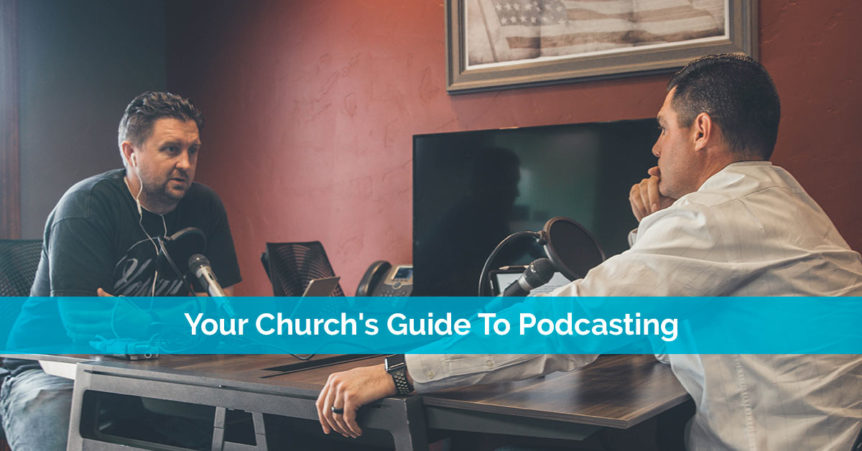Every church should consider doing their own podcast, but where should you start? This guide to podcasting helps introduce you to the basics so you can get started right away.
You might not think a podcast is really necessary, but it’s an easy way to share your weekly sermons and other information.
Plus, podcasts use far less data than videos, which makes them an appealing option for your members and even non-members as they drive to and from work.
Reasons To Start A Podcast
You probably have a church website and one or two social media profiles. Why start a podcast? Actually, there are more reasons than you might think, including:
- Sharing audio versions of sermons
- Providing Bible study sessions
- Answering weekly questions from members and social media followers
- Offering discussions for different groups, such as teens, women, seniors, men, etc.
- Interviewing inspirational people
- Talking with Christian thought leaders
Of course, you don’t have to do just one thing. Go with multiple podcasts to engage a wider variety of people. Need some inspiration for your podcasts? Start by listening to other church podcasts, such as:
- 7 Church Leadership Podcasts Pastors Need To Subscribe To Today
- Top 20 Christian Podcasts Everyone Should Know About
- 15 Awesome Christian Podcasts
- A Definitive List Of The Top 10 Christian Podcasts
Decide On A Theme
Any guide to podcasting wouldn’t be complete without stating that you should decide upon a theme for your podcasts. Think of it like an email newsletter. You subscribe to it because it’s supposed to be filled with ABC content. However, you tend to get more XYZ content. This leads you to stop subscribing.
Podcasting works the same way. People want to know the purpose before they start listening. If you have multiple types of podcasts, list them by theme. This allows people to listen to just the church podcasts that are most relevant to them.
Gather The Right Tools
Cost is a common reason why churches skip podcasts. Of course, lack of time and experience are also popular reasons. However, you don’t need a large investment to start podcasting or any real experience. In fact, you can get by with just a good microphone and a computer. While audio editing experience might help you clean up the audio, a high-quality sound recorder handles most of this for you.
Some podcasters do spend thousands, but you don’t have to. For instance, The Sleeper Hit was launched with under $500 worth of equipment and that’s a one-time investment.
A few things you will have to invest in include:
- High-quality mics
- An audio recorder
- A computer (which you likely already have)
- Hosting (which can be your website hosting if your hosting plan has unlimited storage and bandwidth)
- Audio editing software (not required, but many free options are available)
Upload Your Podcasts
Once you’ve recorded your podcasts, the next step is to upload them. If you have a church website, devote a section to your podcasts or embed them in your blog posts. If you can’t post them to your site or you just want a separate host for your podcasts, you can upload them to sites strictly for podcast storage.
While these aren’t free, most are less than $20 per month, with some coming in at around $10. Podcasting Insights lists 23 options to choose from.
Promote Your Podcasts
The final step in your guide to podcasting is to promote them. After all, you don’t want to spend all that time recording something no one knows exists. Posting the links on your blog, social media and church newsletter are all easy ways to promote them. If you want to get more creative, Forbes has a list of 101 ways to market your podcast, though it’s important to note that some of these are more geared towards businesses.
Ready to start podcasting at your church? Start by creating an incredible church website to host your podcasts.




